 17 citations,
June 2016 in “Australasian Journal of Dermatology”
17 citations,
June 2016 in “Australasian Journal of Dermatology” Treatment with dutasteride, minoxidil, and artificial hair transplantation improved appearance but caused folliculitis.
 17 citations,
May 1998 in “Contact Dermatitis”
17 citations,
May 1998 in “Contact Dermatitis” Minoxidil can cause pustular allergic reactions on skin.
 17 citations,
April 1975 in “The Journal of Pediatrics”
17 citations,
April 1975 in “The Journal of Pediatrics” Minoxidil effectively controls severe high blood pressure in children with few side effects.
 17 citations,
April 1972 in “PubMed”
17 citations,
April 1972 in “PubMed” Minoxidil lowers blood pressure and spreads throughout the body in normal rats.
 14 citations,
April 2009 in “Acta Medica Scandinavica”
14 citations,
April 2009 in “Acta Medica Scandinavica” Minoxidil helps control blood pressure but has side-effects, so it's not for everyone.
 14 citations,
August 2019 in “Journal of Dermatological Treatment”
14 citations,
August 2019 in “Journal of Dermatological Treatment” 10% minoxidil solution better promotes hair growth and reduces hair loss without significant side effects.
 13 citations,
June 2016 in “Dermatologic Therapy”
13 citations,
June 2016 in “Dermatologic Therapy” Minoxidil works better when applied on a damp scalp than a dry one.
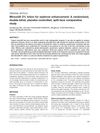 13 citations,
November 2013 in “The Journal of Dermatology”
13 citations,
November 2013 in “The Journal of Dermatology” Minoxidil 2% lotion is safe and effective for making eyebrows thicker and fuller.
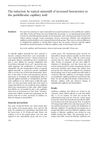 12 citations,
February 1999 in “British Journal of Dermatology”
12 citations,
February 1999 in “British Journal of Dermatology” Minoxidil increased small openings in blood vessel walls near growing hair in rats.
 11 citations,
October 2016 in “Biomedicine & Pharmacotherapy”
11 citations,
October 2016 in “Biomedicine & Pharmacotherapy” Both human platelet lysate and minoxidil can promote hair growth, but they affect different genes and cell survival rates.
 11 citations,
April 2009 in “Pharmacotherapy”
11 citations,
April 2009 in “Pharmacotherapy” Minoxidil can cause deadly skin reaction; monitor patients closely.
 11 citations,
January 2002 in “Dermatologic Surgery”
11 citations,
January 2002 in “Dermatologic Surgery” Using minoxidil before and after facelift surgery can effectively prevent temporary hair loss without causing other complications.
9 citations,
November 2016 in “Archives of Plastic Surgery” The L-U mixture promotes hair growth as effectively as minoxidil.
 9 citations,
January 1987 in “Journal of The American Academy of Dermatology”
9 citations,
January 1987 in “Journal of The American Academy of Dermatology” A man lost a lot of scalp hair quickly after stopping minoxidil, but it grew back with mild male pattern baldness.
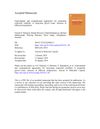 7 citations,
February 2019 in “Journal of Molecular Liquids”
7 citations,
February 2019 in “Journal of Molecular Liquids” Minoxidil dissolves better in propylene glycol and water as temperature and propylene glycol amount increase.
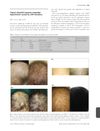 7 citations,
March 2015 in “British Journal of Dermatology”
7 citations,
March 2015 in “British Journal of Dermatology” Applying minoxidil can help improve hair growth in people with hair loss caused by LIPH gene mutations.
 6 citations,
January 2021 in “Journal of The American Academy of Dermatology”
6 citations,
January 2021 in “Journal of The American Academy of Dermatology” Low-dose oral minoxidil can be effective for hair loss but should be avoided in people with certain heart conditions and severe liver problems.
 6 citations,
January 2017 in “Annals of Dermatology”
6 citations,
January 2017 in “Annals of Dermatology” Combination of 17α-estradiol and minoxidil improves hair growth and reduces hair loss in most patients.
6 citations,
June 2016 in “Journal of receptor and signal transduction research” Minoxidil increases calcium levels and kills prostate cancer cells independently of calcium.
 6 citations,
October 2012 in “PubMed”
6 citations,
October 2012 in “PubMed” The combined treatment of 3% minoxidil and 0.1% finasteride is more effective in improving hair loss than 3% minoxidil alone, with similar side effects.
 5 citations,
January 2018 in “Skin appendage disorders”
5 citations,
January 2018 in “Skin appendage disorders” Minoxidil base is preferred for hair loss treatment, but minoxidil sulfate may be an alternative for unresponsive patients.
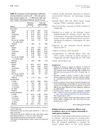 4 citations,
December 2011 in “Journal of The American Academy of Dermatology”
4 citations,
December 2011 in “Journal of The American Academy of Dermatology” Using more minoxidil solution can lead to better hair growth, but people often use only half the recommended amount. Education and motivation can improve results.
 4 citations,
January 2016 in “Acta dermatovenerologica Alpina, Pannonica et Adriatica (Tiskana izd.)”
4 citations,
January 2016 in “Acta dermatovenerologica Alpina, Pannonica et Adriatica (Tiskana izd.)” 5% minoxidil foam is a safe, effective treatment for male pattern hair loss, with increased hair count and few side effects.
 3 citations,
October 2014 in “Pharmaceutical Development and Technology”
3 citations,
October 2014 in “Pharmaceutical Development and Technology” The study found a way to improve a skin-applied minoxidil formula using a specific design method.
3 citations,
October 2013 The new hydrogel and microemulsion could be better for hair loss treatment than current solutions.
 3 citations,
June 1997 in “Veterinary Dermatology”
3 citations,
June 1997 in “Veterinary Dermatology” Minoxidil treatment can stimulate hair growth in hairless puppies if applied early.
 3 citations,
February 2021 in “Medical journal, Armed Forces India”
3 citations,
February 2021 in “Medical journal, Armed Forces India” Combination therapy promotes better hair growth and density.
 3 citations,
October 1988 in “Clinics in Dermatology”
3 citations,
October 1988 in “Clinics in Dermatology” Using 3% topical minoxidil can help women with hair loss, but more research is needed.
2 citations,
February 2021 in “International Journal of Research in Dermatology” Minoxidil with PRP is the best treatment for hair loss.
2 citations,
March 2020 in “International journal of dermatology and clinical research” Microneedling helps hair growth, with hair multivitamins showing slightly better results than minoxidil.

























